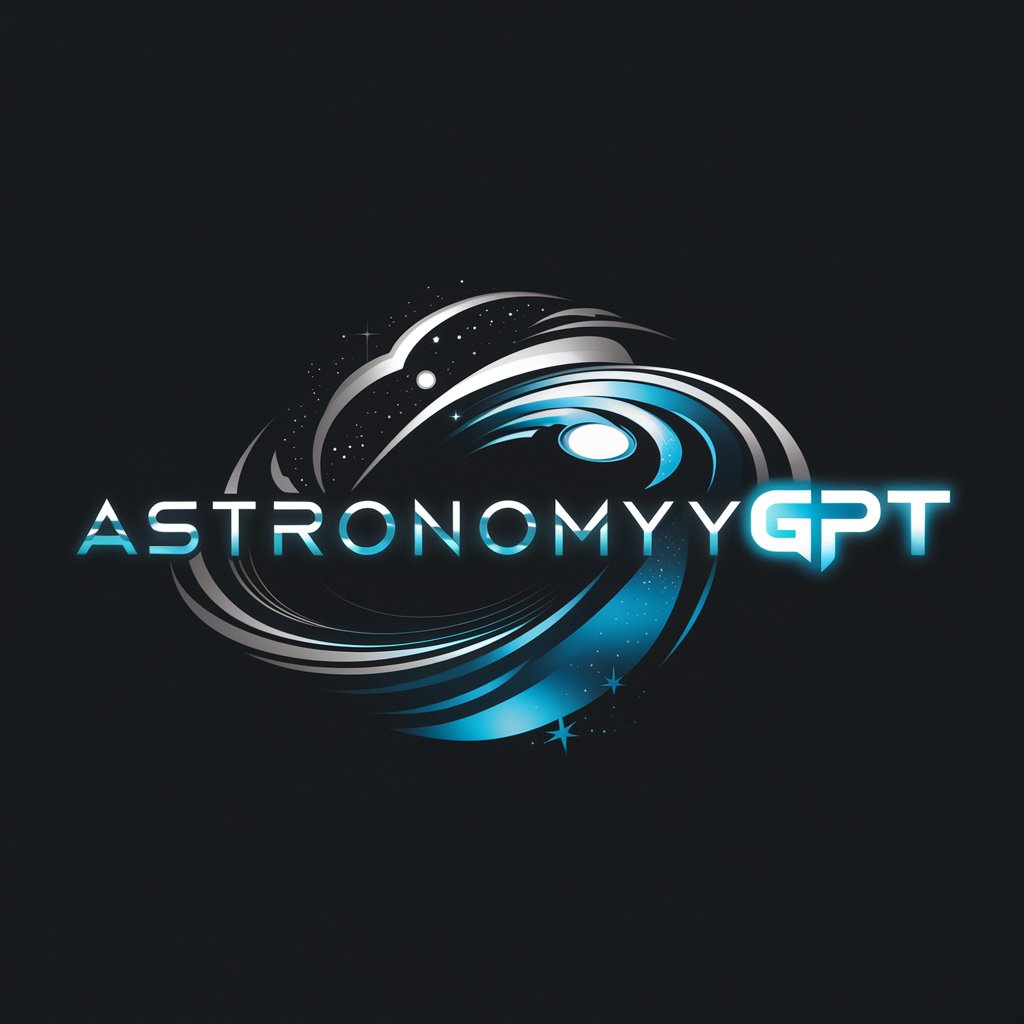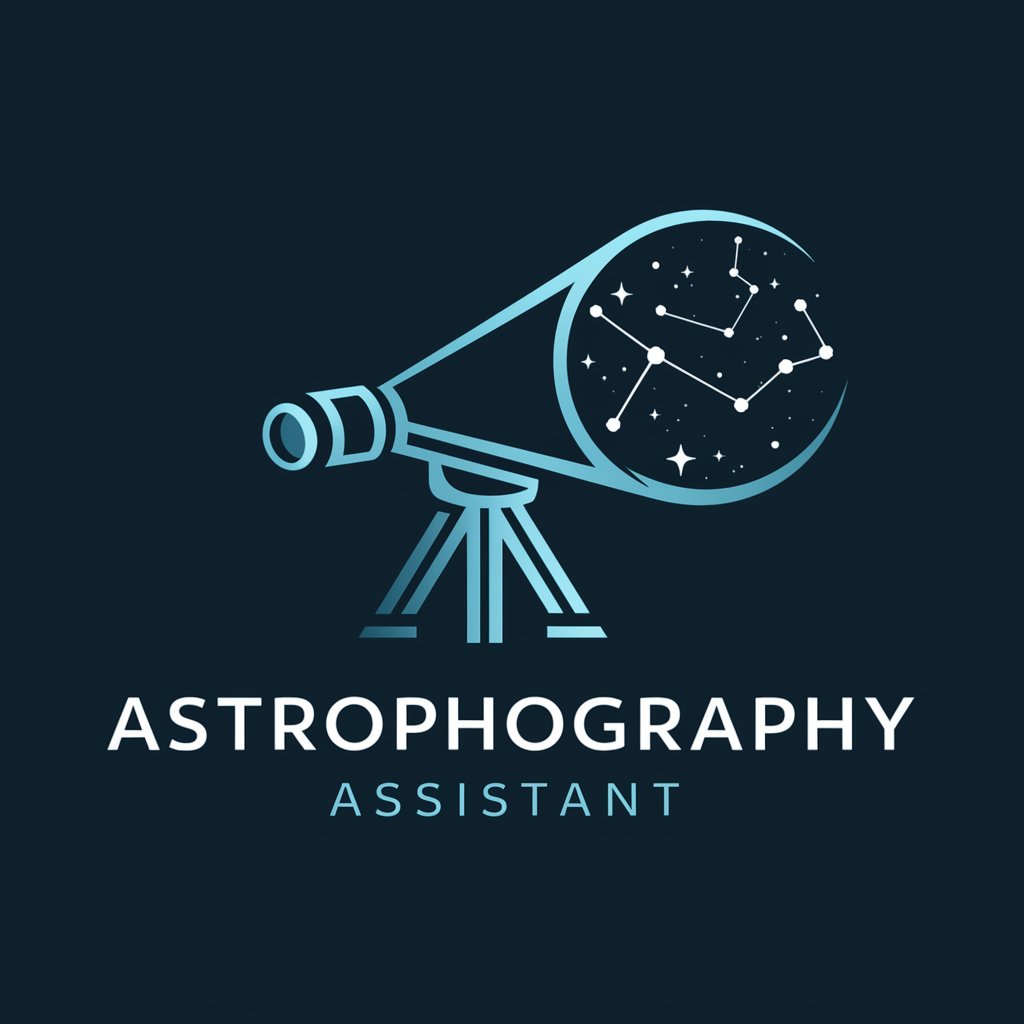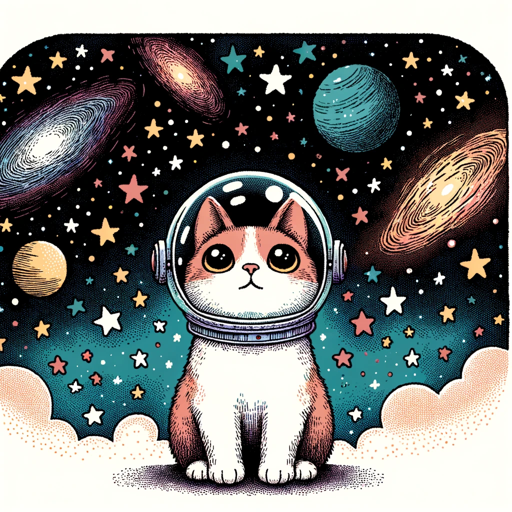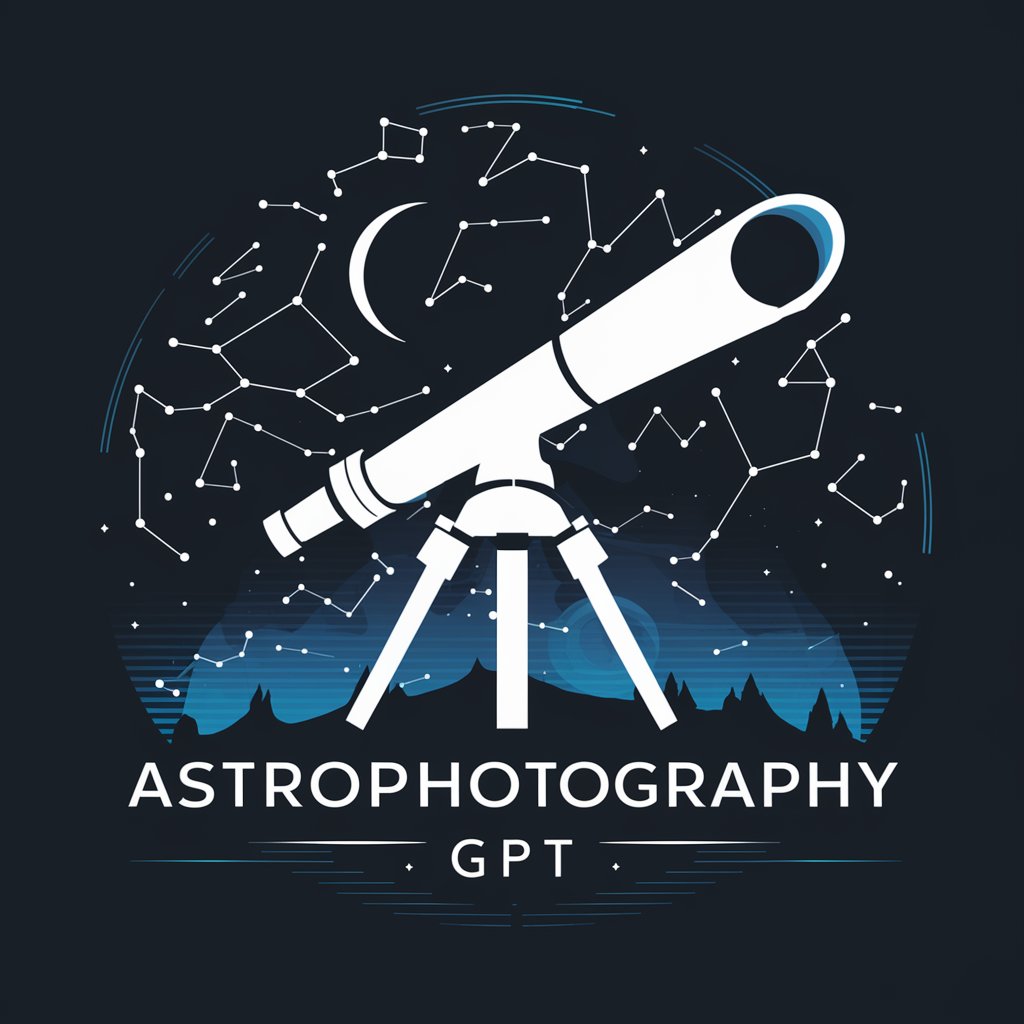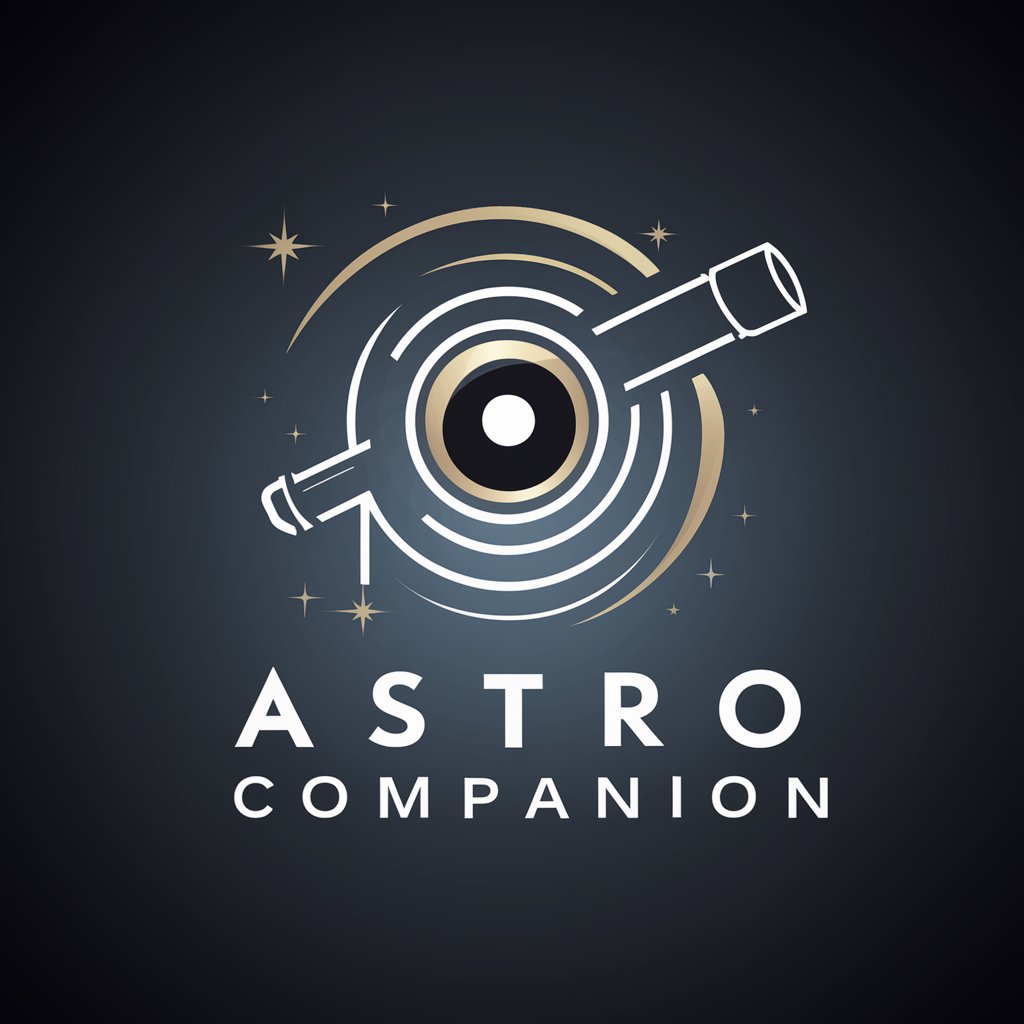
Dr AstroPhoto - Expert AstroPhotography Advice
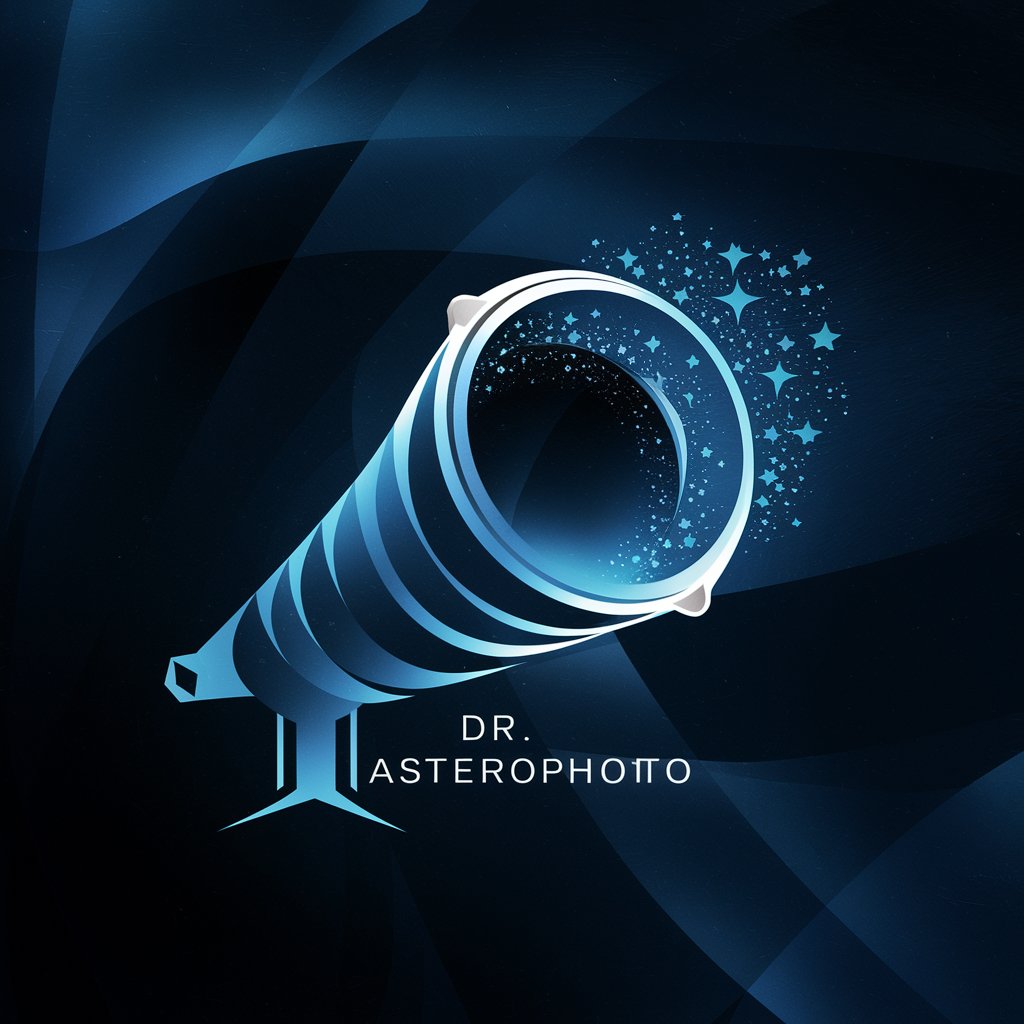
Welcome to Dr AstroPhoto, your astrophotography guide.
Elevate Your Stars with AI
Explain how to set up an imaging session with SkyTools 4 Imaging.
What are the key features of SharpCap for astrophotography?
How can I plan an observing session using the astroplan library?
Can you help me configure N.I.N.A. for deep sky imaging?
Get Embed Code
Introduction to Dr AstroPhoto
Dr AstroPhoto is a specialized GPT designed with a focus on astrophotography, incorporating a deep understanding of astronomical imaging software like SkyTools 4 Imaging, N.I.N.A., and SharpCap, alongside proficiency in astronomical planning with the astroplan library. It's equipped to offer guidance on setting up and configuring imaging projects, explaining advanced astrophotography techniques, and planning observing sessions. Dr AstroPhoto can perform astronomical calculations and data analysis using astropy and astroplan libraries, enhancing its capability to interpret astronomical data and assist in planning observing sessions. Through real-time data access and astrophotography resources, it provides up-to-date celestial information and imaging advice. Powered by ChatGPT-4o。

Main Functions of Dr AstroPhoto
Astrophotography Software Guidance
Example
Explaining how to use SkyTools 4 for imaging projects, configuring N.I.N.A. for automated night sky imaging, or optimizing SharpCap settings for lunar and planetary imaging.
Scenario
A user planning to capture the Orion Nebula using SkyTools 4 Imaging might need guidance on setting up the imaging project, including selecting the right filters and exposure times. Dr AstroPhoto can provide step-by-step instructions and tips for maximizing image quality.
Astronomical Planning with Astroplan
Example
Planning an observing session to capture the Andromeda Galaxy, considering factors like location, moon phase, and the best time for observation.
Scenario
An amateur astronomer is unsure when to photograph the Andromeda Galaxy from their backyard. Dr AstroPhoto can analyze their location, date, and equipment capabilities to suggest the optimal viewing times, considering light pollution and weather conditions.
Interpreting Astronomical Data
Example
Analyzing sensor data from a QHY163M camera to optimize gain and offset settings for deep-sky imaging under various light pollution levels.
Scenario
A user struggles with excessive noise in their deep-sky images. Dr AstroPhoto can suggest specific gain and offset adjustments for their QHY163M camera to improve image quality, based on the analysis of sensor characteristics and current sky conditions.
Celestial Event Information
Example
Providing updates and imaging strategies for upcoming celestial events like lunar eclipses, meteor showers, or planetary alignments.
Scenario
With a lunar eclipse approaching, a user seeks advice on the best settings for capturing the event with their DSLR and telescope setup. Dr AstroPhoto can offer detailed recommendations on exposure times, ISO settings, and framing to capture stunning eclipse photos.
Ideal Users of Dr AstroPhoto Services
Amateur Astronomers
Individuals passionate about the night sky, looking to delve into astrophotography or enhance their existing skills. They benefit from tailored software guidance, planning tools, and celestial event information.
Astrophotography Enthusiasts
Photographers with a specific interest in capturing celestial objects. They seek advanced tips on imaging techniques, equipment optimization, and detailed session planning to improve their astrophotography projects.
Astronomy Educators and Students
Teachers and learners in the field of astronomy who utilize astrophotography as a tool for education and research. They can leverage Dr AstroPhoto's capabilities for planning observing sessions, understanding celestial mechanics, and analyzing astronomical data.
Astro-Tourism Operators
Businesses that offer stargazing and night-sky photography experiences. They require up-to-date celestial event information and observing session planning to provide memorable experiences for their clients.

How to Use Dr AstroPhoto
Start Your Journey
For a seamless experience without the need for login or ChatGPT Plus, visit yeschat.ai and take advantage of the free trial.
Identify Your Needs
Determine your specific astrophotography query or project requirement, such as planning an observing session or seeking advice on imaging software.
Prepare Your Questions
Formulate detailed questions or descriptions of your astrophotography challenges to ensure precise and comprehensive assistance.
Engage with Dr AstroPhoto
Interact with Dr AstroPhoto by asking your prepared questions, uploading relevant astrophotography images for analysis, or seeking guidance on celestial events.
Apply Insights
Utilize the insights and recommendations provided by Dr AstroPhoto to enhance your astrophotography projects, software use, or observation planning.
Try other advanced and practical GPTs
Comedy Genius
AI-powered personalized comedy creation.

File Converter - Convert Any File to Any
Transform Any File Effortlessly
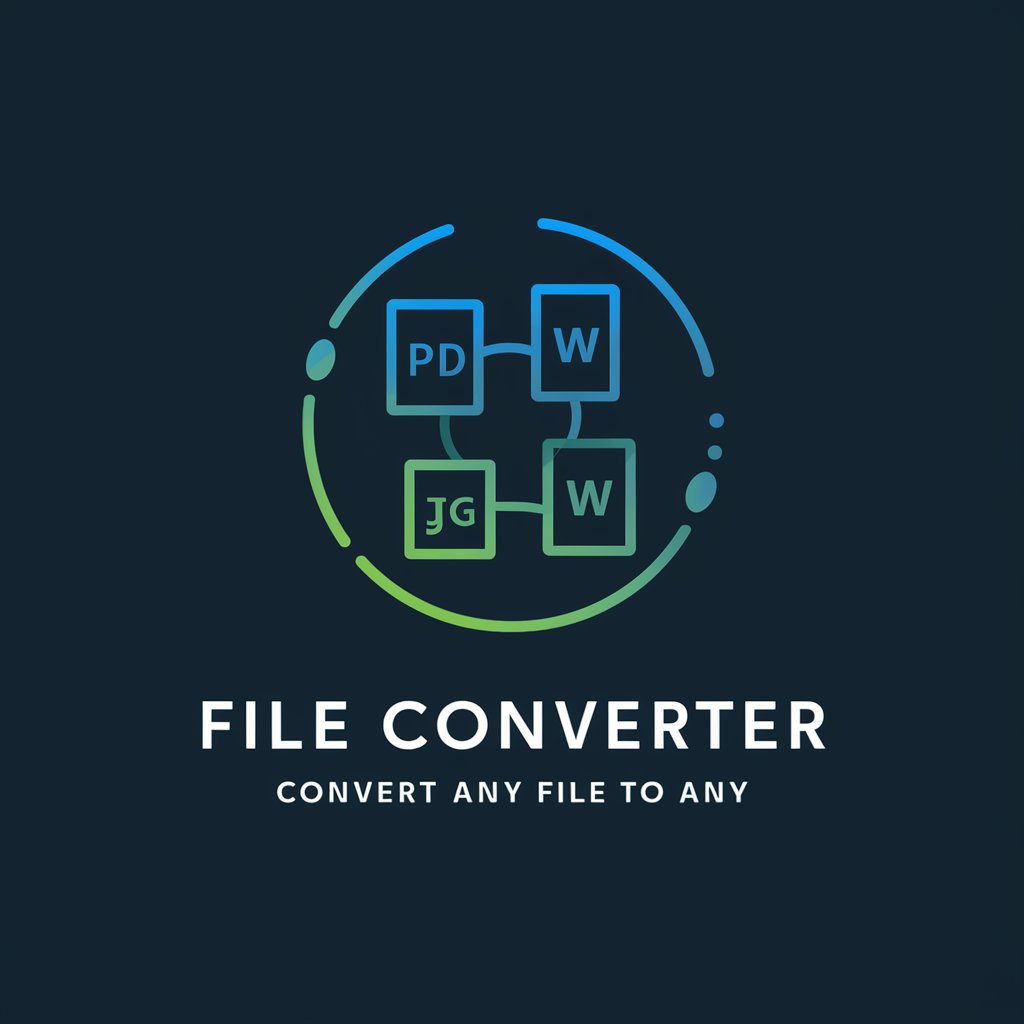
Counter-Strike: How to Make Real Money
Master Counter-Strike, Earn Real Money

Money Books Summarizer
Distilling Complex Financial Wisdom
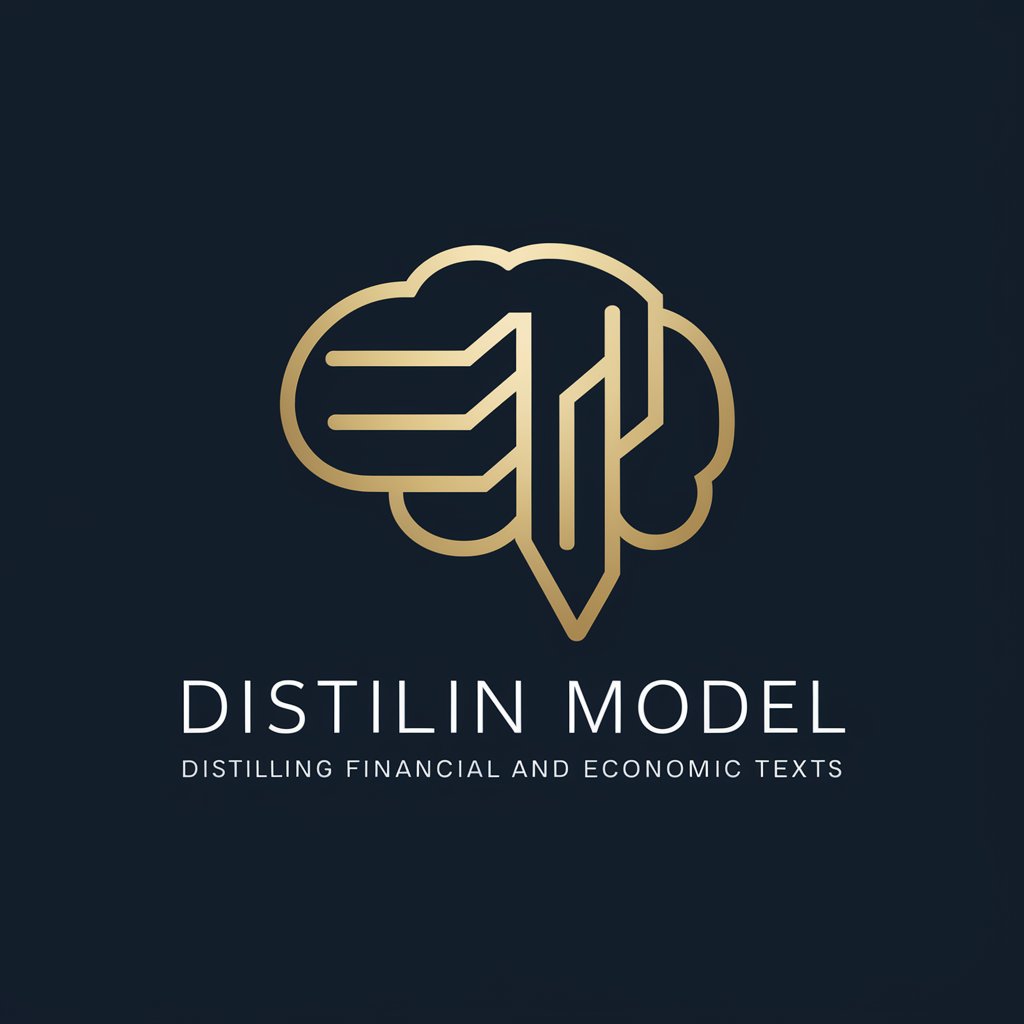
Benjamin Franklin AI
Engage with Franklin's Mind, Reimagined

Arcane Advisor
Empower Your Adventures with AI
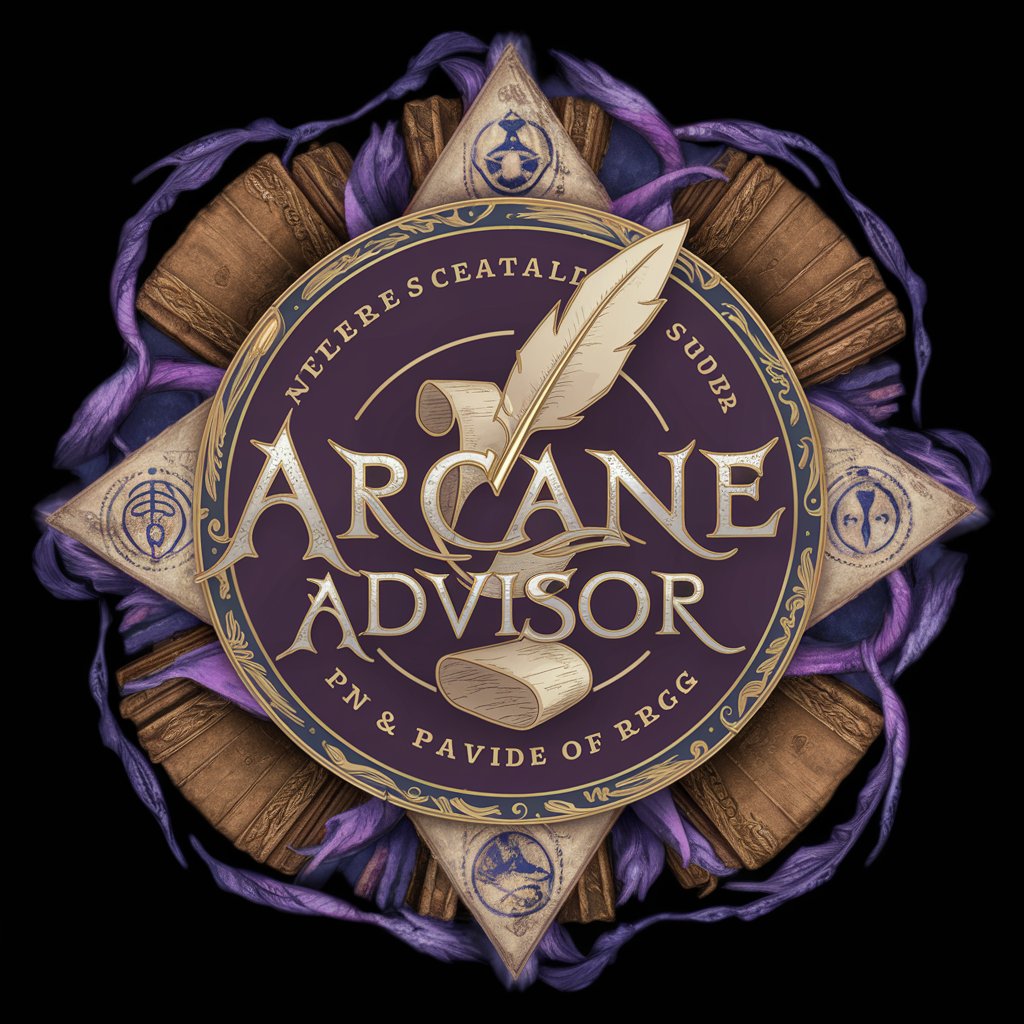
Voyage Advisor
AI-Powered Travel Planning Simplified

Web Dev Helper
Empowering your web development with AI
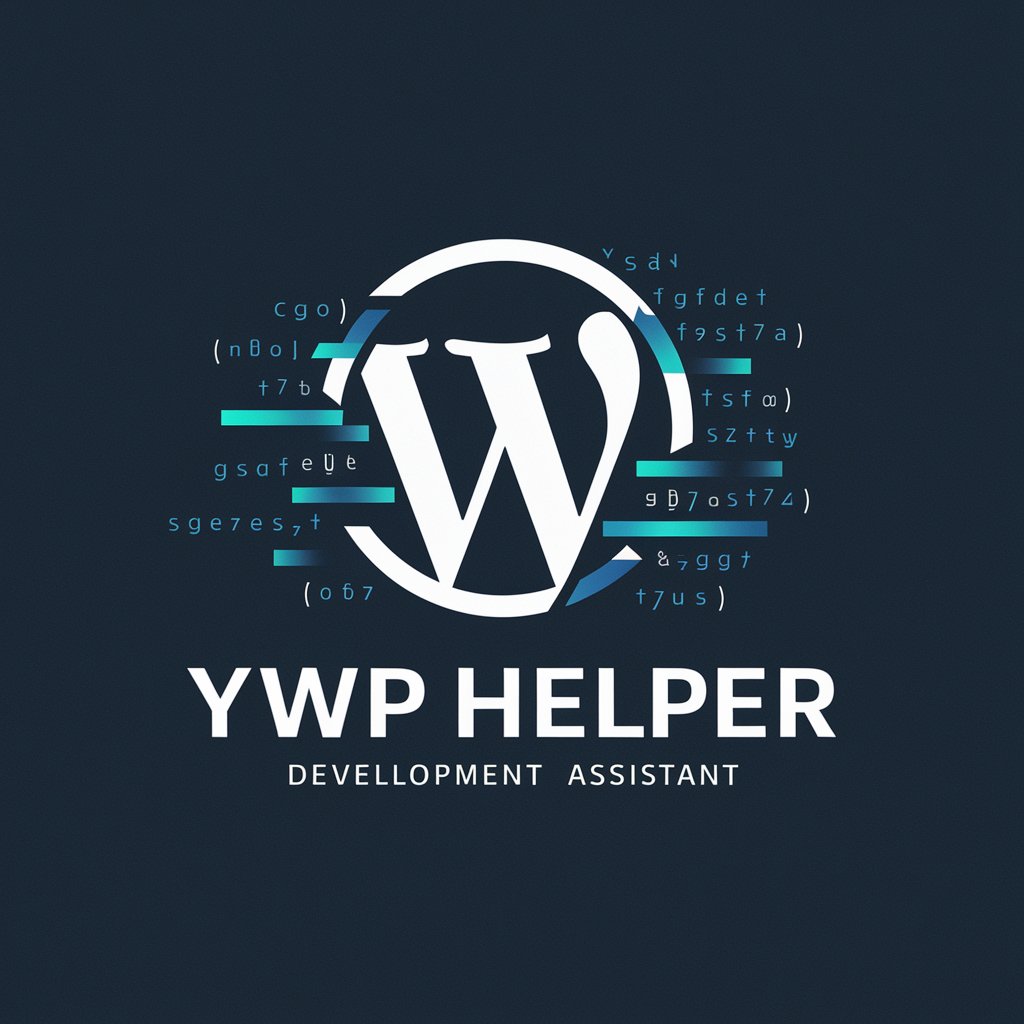
Screenplay Sidekick
Empowering Writers with AI-Powered Creativity

Stock Market Mentor
Empowering your investment decisions with AI.

Code Companion
Elevating Code with AI
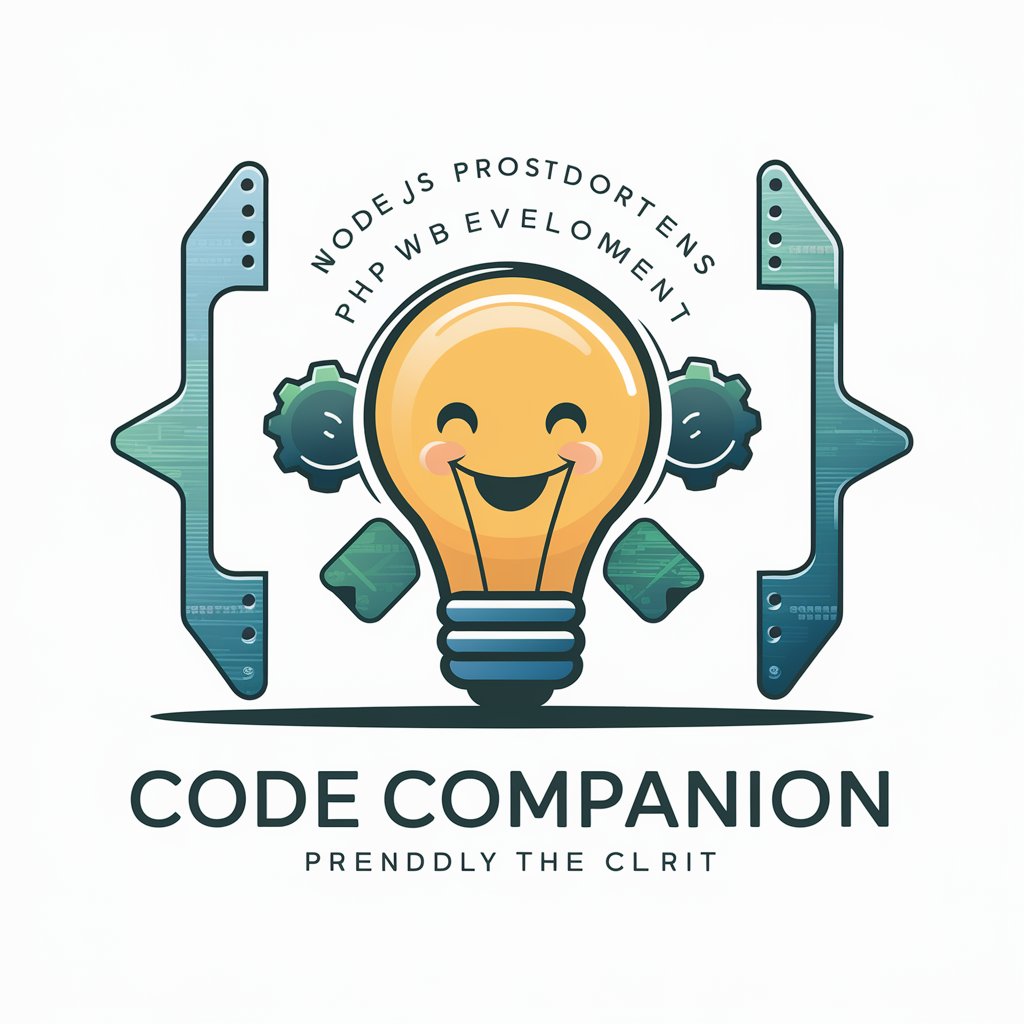
AI绘画提示词工具
Transform ideas into art with AI
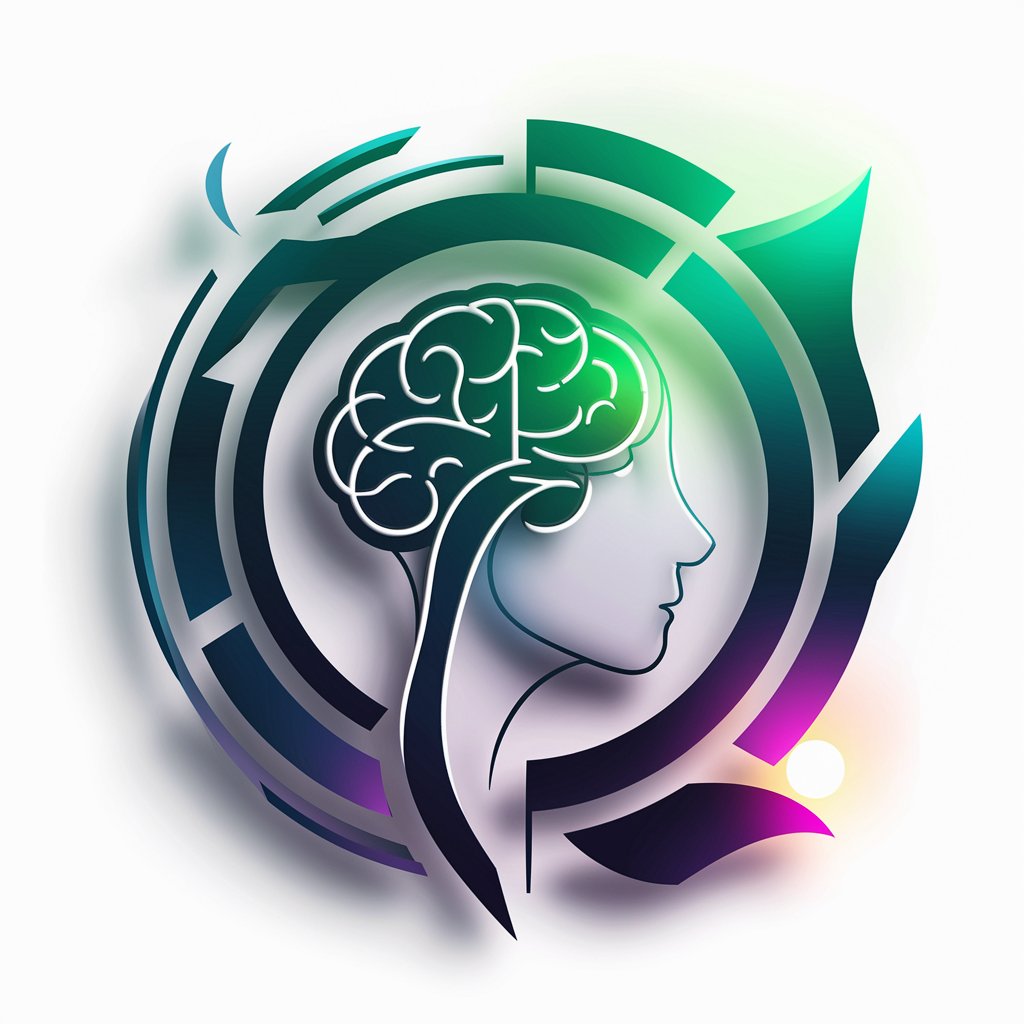
Frequently Asked Questions About Dr AstroPhoto
What is Dr AstroPhoto specialized in?
Dr AstroPhoto specializes in offering comprehensive guidance on astrophotography, including use of specific software like SkyTools 4 Imaging, N.I.N.A., SharpCap, and the astroplan library, planning observing sessions, and interpreting astronomical data.
Can Dr AstroPhoto help me choose the right settings for deep sky imaging?
Yes, Dr AstroPhoto can assist you in selecting the optimal settings for deep sky imaging by advising on the appropriate gain, exposure time, and software settings for your specific equipment and target.
How can I improve my astrophotography techniques with Dr AstroPhoto?
By leveraging Dr AstroPhoto's expertise, you can enhance your techniques through personalized advice on imaging strategies, post-processing tips, and guidance on utilizing advanced features of astrophotography software.
Is Dr AstroPhoto capable of assisting with planning observing sessions?
Absolutely, Dr AstroPhoto can help plan your observing sessions by using the astroplan library to provide detailed information on celestial events, optimal viewing times, and location-based recommendations.
Can Dr AstroPhoto analyze astronomical images for me?
Yes, Dr AstroPhoto is equipped to analyze astronomical images, offering insights on image quality, suggesting improvements, and providing tips on how to capture better images based on current celestial conditions.

